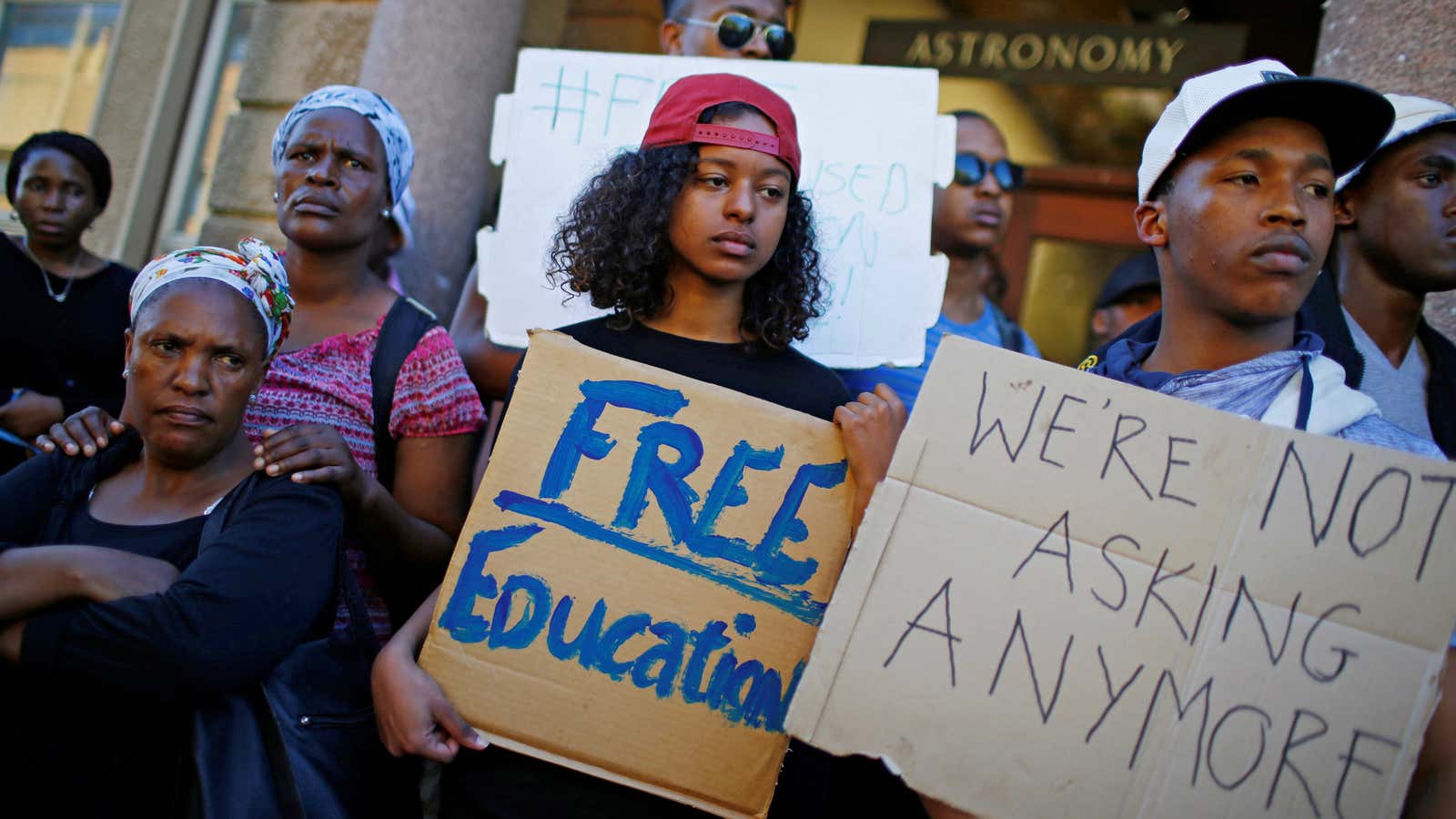There was a higher proportion of black students successfully graduating from South Africa’s universities during apartheid than there is today.
In 1975, 15% of black students successfully graduated, in 2016 that figure had dropped to 5%. In contrast, the number of white graduates had increased slightly during the same period. The sobering data was released by Pali Lehohla, South Africa’s statistician general, on Oct. 24.
There are undoubtedly more black students today than during apartheid, so 5% translates to a much higher number of students, but the data point highlights one of the hot button issues in South African higher education today—the lack of funding opportunities available to black students.
It is this lack of funding that has driven the mass protests of the Fees Must Fall movement over the last two years. During apartheid, black students had opportunities to travel abroad on fully funded scholarships—many of them did so in political exile. There were also segregated universities, which have since been absorbed into other former white-only schools, or neglected.
Today, the population of black students has increased and young black South Africans have on average higher level of education than previous generations. Still, given the endemic inequalities in South African society and mirrored on campuses, getting from first year to graduation remains hardest for black South Africans. Despite the increase in state grants for education, it still isn’t enough.
Post-apartheid South Africa’s education system has perpetuated the racial and class inequalities of the previous regime. The majority of working class black students come from poorly-resourced schools and are ill-equipped to make the university grade. They get lost in a public education system equipped to educate 450,000 undergraduates, but which is currently hosting nearly a million.
Jacob Zuma’s government has clashed with the largest student protest movement in 2015 and again in 2016 over the state’s failure to make good on the promise of free education. On Oct. 25, students from the University of Cape Town and Cape Peninsula University of Technology planned to march to parliament, where South Africa’s recently appointed finance minister delivered first mid-term budget speech.
Demanding that the president release a long-awaited report on free education, the march was meant to be a continuation of the landmark Fees Must Fall protests. The march was cancelled at the eleventh hour after student leaders said they could not guarantee the safety of protesters after police and city officials allegedly “promised to retaliate.”
